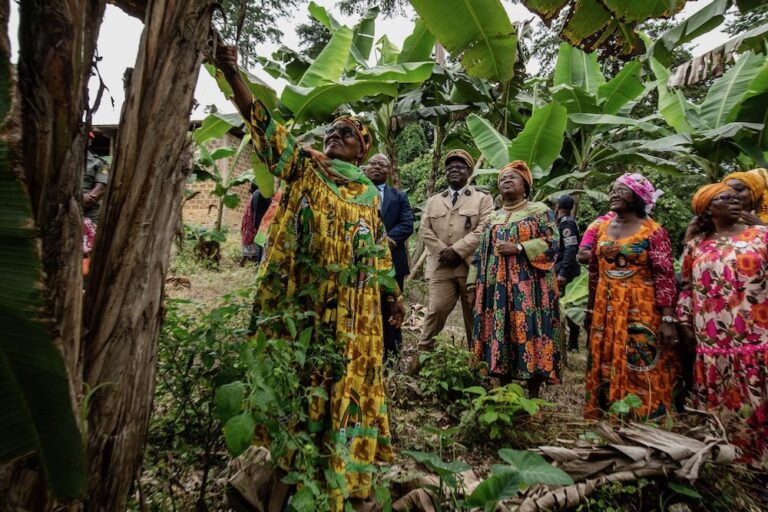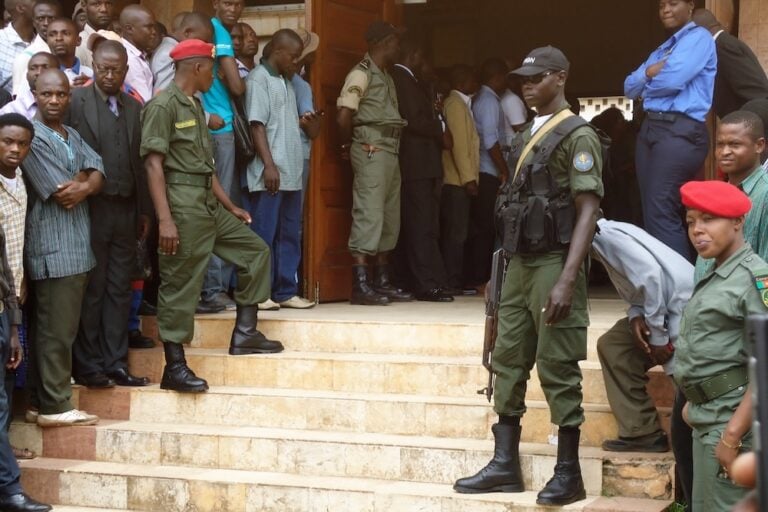RSF is having difficulty establishing whether Cameroonian mobile phone operator MTN's Twitter via SMS service has finally been restored after being blocked for about 10 days.
(RSF/IFEX) – 22 March 2011 – Reporters Without Borders is having difficulty establishing whether Cameroonian mobile phone operator MTN’s Twitter via SMS service has finally been restored after being blocked for about 10 days at the government’s behest. Contradictory statements are being made.
Many Tweets yesterday suggested the service had been restored in practice. And when reached by phone, telecommunications minister Jean-Pierre Biyiti Bi Essam seemed to confirm this to Reporters Without Borders: “It is not suspended. The measure has been lifted. I have nothing more to say on the subject.”
But an MTN representative said the contrary today. “The service is interrupted for the time being,” she said. “It is currently unavailable. If you read on the Internet that Twitter has been restored, that is not the information we have.”
“We condemn this lack of transparency and fear its implications for online freedom of expression in Cameroon,” Reporters Without Borders said. “We hope the blocking of Twitter via SMS is not a prelude to other kinds of censorship of mobile phone services or tighter controls on the Internet. Everything suggests that the authorities are trying to stop microblogging. We deplore the apparent readiness to impose censorship for the least reason, especially when the target is the peaceful expression of opinions.”
MTN Cameroon announced the suspension of its Twitter via SMS service on 8 March “for reasons beyond [their] control.” The service enabled its mobile phone clients to post Tweets by sending an SMS to the number 8711. There has been no interruption in access to Twitter via the Internet in Cameroon.
After initially blaming a technical problem, MTN admitted that it had blocked the service on orders from the government. MTN’s head of information, Georges Mpoudi, tweeted on the day of the suspension: “We can’t comment further than ‘security reasons’ on government instructions for SMS Tweets suspension.”
Communication minister Issa Tchiroma Bakary told Agence France-Presse on 11 March: “I am not aware of all aspects of the situation but I can tell you one thing, that it is the government’s job to protect the nation.”
So far, social networks do not have many participants in Cameroon and Facebook, for example, is used by only 1.5 per cent of the population. Only around 50 people were affected by the suspension of MTN’s Twitter via SMS service but it prompted a great deal of comment and protests by Twitter users, especially on the #SMSTweet hashtag.
The suspension of the service, coming as it did after demonstrations against President Paul Biya at the end of February, has prompted fears of an attempt by the Cameroonian government to suppress the use of social networks, which have played a crucial role in the political unrest in the Arab world.
With a presidential election due in October, 2011 will be a crucial year for Cameroon and Reporters Without Borders will be paying close attention to respect for media freedom and the free flow of information online.


